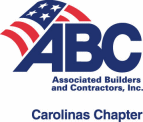Last week, I blogged about the Southeast Caissons, LLC v. Choate Construction Company case, in which the North Carolina Court of Appeals held that a general contractor could not enforce a forum selection clause in a subcontract that was never signed.
And now, the rest of the story (with apologies to Paul Harvey).
Even if the subcontract HAD been signed, the forum selection clause would not have accomplished the general contractor’s goal of having all disputes resolved in the Wake County Superior Court. You might find that ruling surprising after reading the following excerpt from the decision:
The subcontract also contained a clause in Article X, Section 3(b) entitled “Additional Dispute Resolution Provisions.” This clause stated: “Venue for any arbitration, settlement meetings or any subsequent litigation whatsoever shall be in the city of Contractor’s office as shown on page 1 of the Subcontract.” [The GC’s] office was shown on page 1 of the subcontract as being located in Raleigh, Wake County, North Carolina.
Huh? A clause stating that disputes “shall” be resolved in a particular location is not sufficient to require dispute resolution in that locale?
That’s right, folks! In order for one party to secure home field advantage in construction dispute resolution, North Carolina’s appellate courts consistently require that the applicable forum selection clause contain words like “exclusive,” “sole” or “only” to indicate that both parties intended to make jurisdiction exclusive in a certain place. That means the GC in Southeast Caissons could only require its sub to litigate in Wake County if the forum selection clause had read something like this: “The parties agree that Wake County, North Carolina shall be the sole and exclusive venue for the resolution of any and all disputes arising out of or related in any way to this Subcontract.” (And, of course, if the GC had secured its sub’s John Hancock on the subcontract’s signature page — per my previous blog post).
Bottom line? If you use a form subcontract that includes a forum selection clause, you might want to review it and make sure it includes magic words like “exclusive,” “sole” or “only” in describing where venue is proper. Better still, have your construction attorney review your forum selection clause and evaluate whether it’s likely to be enforced as you intend it to be.







